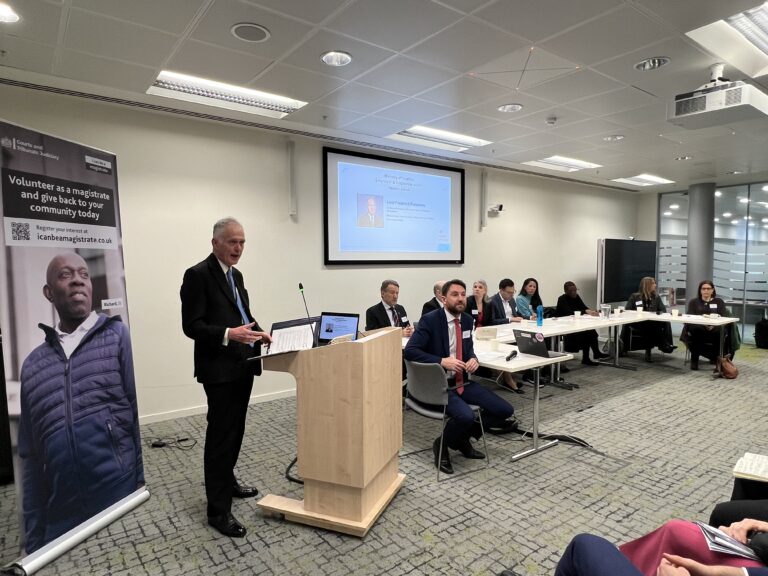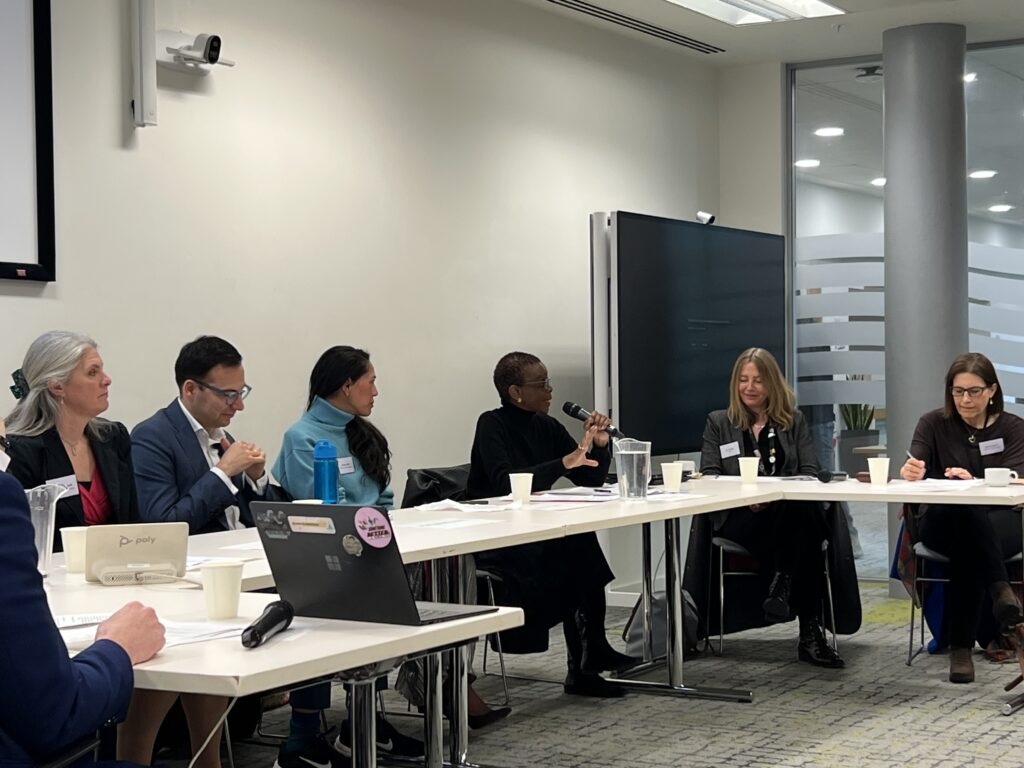From courtroom to boardroom: a call for employers to support the magistrates of tomorrow

Minister for Family Justice Lord Ponsonby discusses why the MoJ is asking employers to encourage the magistrates of tomorrow and give recognition to this historic service.
More than 70 employers recently gathered at Ministry of Justice’s headquarters to hear directly from magistrates, their employers, and the Minister for Family Justice, Lord Ponsonby – about why supporting staff to take up this important civic role isn’t just good for society, but good for business too.
Lord Ponsonby sat down with us to discuss this call to action, his experience of being a magistrate, and shared what he will be focusing on in the year ahead.
Hosted by the Ministry of Justice, the event highlighted how volunteering as a magistrate builds valuable workplace skills – from decision-making and conflict resolution to confidence and leadership. As one attendee later shared:
Lord Ponsonby, a magistrate of nearly 20 years himself, shared his passion for the role and his call to employers nationwide to help build a fairer, more reflective justice system.
Why are magistrates so important for the justice system?
The magistracy is the bedrock of the judiciary, as magistrates’ courts deal with 95% of all criminal cases. We need to have a fair judicial system. And to do that we want the magistrates sitting in those courts to be reflective of the citizens in Britain, and for them to be sensible people, whom you can trust to make fair decisions to get a just result.
You spoke to some of the magistrates at the event – what were your reflections on those conversations?
I could sense from the room that people are really proud to be magistrates, and value the role they have. They recognise they can make important decisions which affect people’s lives, in a way that is responsible and structured. I thought they were all excellent examples of what a good, effective magistracy looks like.
Do you think the event influenced the employers in attendance?
It was helpful to see from a different lens, from the employers, about the benefits of volunteering to be a magistrate. They felt it benefitted employee development, things like taking on responsibility, managing processes, speaking in public – it all benefitted their working lives.
It’s great to know that right here at the MoJ, we practice what we preach and help accommodate staff who wish to volunteer as magistrates, helping them to fit it around their day jobs.

How you can apply to be a magistrate
You need to commit to a minimum of 13 days a year to court sittings, on top of training, so ensure you discuss this with your line manager.
You can find guidance to help your employer support your magistrates journey on our employer advice webpage.
Did any points catch your attention during the event?
An excellent point was raised by one of the magistrates at the event in that they are used to having difficult conversations, not just within the court but also backstage, when magistrates might not agree with each other and need to reach an agreement. These conversations are natural in the workplace, and being a magistrate allows you to develop these problem-solving skills in another professional setting.

You’ve served as a magistrate for almost 20 years – what encouraged you to apply?
I initially applied to hear cases on youth crime, however, you need to do a couple of years in adult crime before you look at those cases.
It was a passion for me because at the time my own children were participating in different after-school clubs, however, I could see that the children who were not going to those same clubs, often were the ones getting in trouble or not staying in school – so that inspired me.
Sounds like we should all be encouraging people to throw their hat in the ring?
Absolutely, it’s something that I routinely do with my friends, family or colleagues. Magistrates are vital – we need diverse perspectives and real-world experience – ensuring justice is not only impartial but grounded in the communities they serve.
In terms of your wider work, what are you focusing on in 2025?
With family courts, the priority is to continue to enhance the roll out of the ‘Pathfinders’ scheme. This is an alternative approach to private law by trialling a more investigative approach to family cases. We’ve seen some great results from the pilot scheme in Dorset and North Wales. Data from the pilot shows cases are being resolved 11 weeks quicker, and the backlog of cases reducing by 50% across both Dorset and North Wales.
Where appropriate, I want to continue to support overseas territories who may have particular justice system challenges. And also, I think it’s vital to continue to be a ‘listening friend’ to our Crown Dependencies (self-governing territories of the British Crown, not part of the UK, with their own legal systems) with any issues that they may have.
Apply to be a magistrate
If you think you could be a magistrate, register your interest! Get notified about local magistrate vacancies and receive regular emails on next steps in the process and any preparation before becoming a magistrate.
Do you know an employer who may be interested in supporting their employees to be magistrates? They can visit our Employer Advice page.
